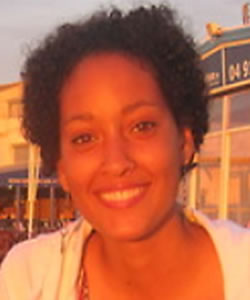The students at Sciences Po gain admission through a national contest. If their scores are high enough, they’'re in. This dynamic creates a view of the Sciences Po universities throughout the country as elitist, and in most towns where they are found, they are separated from the main campuses of public universities. It does, however, show France'’s dedication to equality, even if the preparation for these national contests will still depend heavily on the student’'s circumstances.
Students at Sciences Po attend school like a full-time job (counting full-time like the French). Higher education seems to be regarded in Europe as a career builder, rather than as the romantic four year search for selfhood that it is often characterized as in the United States. In many European countries, it is cheap or even profitable to be a student for as long as possible. In a Sunday morning conversation that I had with my host, she explained that she saw college prices as a fundamental manifestation of the American “pioneering spirit.” She contended that if students were able to undertake hundreds of thousands of loans, that they must be confident enough to believe that they would be successful enough later in life to repay it all. And that takes a lot of guts.
At Sciences Po, on the first day students are given their class schedules with about 30 hours of classes per week. They are able to choose a few classes, but most of their subjects are predetermined. In a class yesterday, I started talking to a fellow student about the workload. He said that though there are so many hours of class in France, most of the work is done in class, rather than outside of class like in the United States. It's true, for most of my classes, I enter the classroom and start taking notes on the lectures. I have embarrassed myself a few times by raising my hand at different moments during the lecture to ask a question. My professors have avoided eye contact and continued with their speech-like lecture and I have quietly put down my hand. The contrast with a US classroom and the ‘do-it-yourself’ attitude is stark.
In the United States, it seems as though students look to constantly challenge whatever the professor is saying because that seems to be the way to distinguish yourself. Here in Strasbourg, that is not the goal. That is not to say that either is better, but that they lead to different learning atmospheres. In the United States, you find a more skeptical outlook on knowledge, where central ideas are twisted and prodded to see how they react to different situations and perspectives. Students in the United States seem to take on knowledge creation as their own process to see if the knowledge passes the test of recreation. This constant recreation could be quite inefficient and egotistical. In France, what I tend to see is a society composed of people living more routine lives than people in the United States. However, the reasons for those routines have been perfected over hundreds of years. Because of this length of history, constant reinvention would be taking a step back. So within the French classroom, students are mute transcribers of the lecture. Not because they are without voice, but because their system of knowledge creation is based on a linear model, rather than circular.
My main observations, however, have been based on the particular Sciences Po program. I have found that it is a very different approach to understanding international relations, where ‘international’ is understood as “between states.” The School of Foreign Service program has its students learn a bit about very different issues in diverse regions of the world. Here at Sciences Po, it's all about Europe. The classes that I am taking this semester range from a first year class on the subject of EU constitutional law to fourth year classes about comparative law of European states or the European Convention of Human Rights. I must concede that I did choose these classes so I might be giving the Sciences Po program an unfair representation. But I think that my point still stands. Whereas at Georgetown we are required to take international trade and finance, world and regional histories, here the requirements are European economics and European history. My question over the last few weeks has been this: how can you actually study relationships between states by only understanding your country's (or regional organization's) relationship to other parts of the world?” And I think that Sciences Po students ask themselves the same question throughout their four years here and have a passion for learning about places not covered within their curriculum, just as Georgetown students wish they had as much technical training in the fields that they are interested in to make them truly job-ready.
The give-and-take of different international relations curricula show the diversity of the young multidisciplinary field. The rise of the importance of regional organizations is nothing short of exciting, as it pushes students to critically analyze their identities at different levels: French and European. I think that it is within that diversity that we find the meaning of the field and it is by sharpening our instruments of changing our perspectives that as students we are able to progress.

